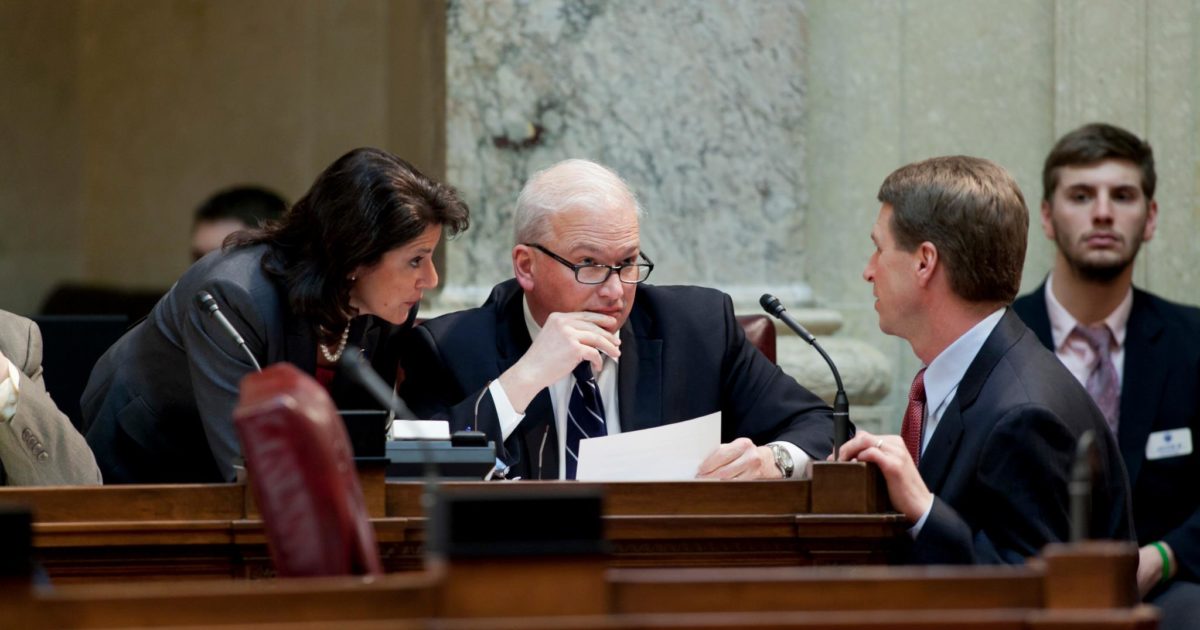What Senator Scott Fitzgerald Knew
The Evidence Shows Sen. Scott Fitzgerald Has Not Been Forthcoming or Honest With the Media

With the recent release of nearly 1,500 pages of documents from the John Doe investigation of political corruption convened in 2012 we now know why Republicans were so eager to have these records destroyed. What has been reported to date paints an unsavory picture of how previously understood ethical and legal lines were blurred or outright ignored by Gov. Scott Walker, his campaign team and Republican legislators in pursuit of political power.
As reported by the Milwaukee Journal Sentinel, Senate Republican leader Scott Fitzgerald is claiming, “I didn’t have any conversations about any third-party organizations at all,” and that he did not work closely with the Wisconsin Club for Growth. Fitzgerald further alleged he had no knowledge of $750,000 in donations from the owner of the nation’s largest manufacturer of lead in paint, Bill Simmons, and his company, NL Industries.
These statements were made despite significant evidence that they are simply not true.
The evidence shows Sen. Scott Fitzgerald has not been forthcoming or honest with the media
Documents released by the Guardian earlier this month reveal that Fitzgerald was asking Gov. Walker to help raise money for the Republican State Leadership Committee, a third party group coordinating with the Club for Growth Wisconsin to spend on behalf of state Senators in their 2011 and 2012 campaigns. At least one meeting was held among a group of Republican insiders, including Fitzgerald’s staff, at which the topic of Senate recall elections and the efforts being made by various entities were specific agenda items. And, RJ Johnson, who controlled the Wisconsin Club for Growth while working for Gov. Walker’s campaign, directed the Governor’s Chief of Staff to relay information to Sen. Fitzgerald about their efforts and reported he was “involved directly in the Senate stuff.”
Finally, Fitzgerald’s statements were made despite evidence that he worked closely with the lobbyist for NL Industries to quietly slip language into the state budget. Republican members of the Joint Finance Committee, appointed by Fitzgerald, included requested language in the wrap up “999 motion” to the 2013 state budget, literally approved in the middle of the night. Republican Senators Olsen, Harsdorf and Darling on the Finance Committee all benefited from spending by the Club for Growth in their 2011 campaigns and voted for the budget amendment.
As the leader of the majority party, Scott Fitzgerald had the power to control the Senate agenda — rewarding allies and punishing those who did not support him, his favored candidates or groups acting to benefit him and his allies. As noted by John Doe Special Prosecutor Schmitz, some of the conduct uncovered in this 2012 investigation is reminiscent of the 2002 “caucus scandal.” Wisconsin’s media aggressively pursued allegations of impropriety and investigations by authorities resulted in numerous charges against state legislators, including “pay for play” and illegal campaign coordination.
The evidence shows to date Sen. Fitzgerald has not been forthcoming or honest with the media about these matters. He has not answered questions about what information he shared with the Senators who directly benefitted from his efforts to raise funds for their campaigns, his efforts to raise funds for third party groups active on their behalf and his coordination with groups working with and parties working for Gov. Scott Walker. Fitzgerald’s fellow Senators have for their part dodged media inquiries and remained silent or pled ignorance about what was happening around them.
While the parties involved in these matters would like the media to stop asking questions, the public interest demands the truth be exposed and the public officials involved in these affairs be held to account for their actions.
